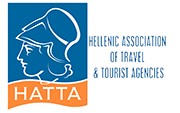Essential Greek Phrases Every Traveler Should Know: Your Survival Guide to Greece
After 15 years of dragging wide-eyed tourists through every nook and cranny of Greece, I've seen it all—the deer-in-headlights look when locals speak, the awkward pointing at menus, the desperate search for English speakers. Truth is, while many Greeks can chat in English (especially where tourists flock), mastering a few Greek phrases can turn your vacation from a surface-level postcard experience into something genuinely authentic. It's like having a secret handshake with the entire country.

Why Learning Basic Greek Phrases Matters
Back when I first started herding travelers through Athens' chaotic streets and Santorini's impossibly narrow alleyways, I noticed something magical. The moment a tourist uttered even the most butchered Greek phrase, locals transformed. Their guarded expressions melted, doors mysteriously swung open, and sometimes—I swear this isn't made up—extra food materialized at restaurant tables without charge.
Throwing out a Greek phrase isn't just communication—it's a tiny rebellion against being just another camera-wielding foreigner. It screams "I see you as people, not props for my Instagram."
Greek Pronunciation Basics: Don't Panic
Before your eyes glaze over at those strange symbols, let me promise you something: Greek pronunciation isn't the nightmare you think it is. Yes, the alphabet looks like math equations gone rogue, but the sounds are surprisingly manageable:
- α = the "a" in "father" (not the weird "a" in "apple")
- ε = like telling someone to "let" you through
- η and ι = both make the "ee" sound in "seeing" (why have two letters for one sound? Greek mysteries!)
- ο = the "o" in "go" (nice and simple)
- ου = like the "oo" in "food" (say it like you're impressed)
- γ = either a soft "g" or "y" depending on its mood that day
- χ = that throat-clearing sound you make when something's stuck (like the "ch" in Scottish "loch")
Look, nobody expects operatic perfection. Even if you sound like you're gargling mouthwash while speaking, Greeks will be tickled pink by your effort.
Essential Greek Phrases for Everyday Interactions
These are your conversational lifesavers that'll get you through most social situations:
Γειά σου (YAH-soo) – Hello/Hi
The Swiss Army knife of Greek greetings. Drop this when entering tiny shops or meeting someone in casual settings. It's like verbal olive oil—works with everything.
Καλημέρα (kah-lee-MEH-rah) – Good morning
Use before noon. I've seen cranky shopkeepers transform into delighted grandparents when tourists unleash this morning charm offensive.
Καλησπέρα (kah-lee-SPER-ah) – Good evening
Your go-to from lunch through dinner. Walk into a taverna with this, and you're already halfway to being adopted by the owner.
Καληνύχτα (kah-lee-NEEK-tah) – Good night
Perfect for that wobbly stumble back to your hotel after discovering raki isn't "just like water" as the locals claimed.
Ευχαριστώ (ef-kha-ree-STO) – Thank you
Possibly the most valuable Greek phrase in your arsenal. I've watched tourists score free desserts, better tables, and genuine smiles with just this word.
Παρακαλώ (para-kah-LO) – Please/You're welcome
This linguistic multitasker works when asking for something or responding to thanks. Double bang for your buck.
Συγγνώμη (see-GNO-mee) – Excuse me/Sorry
Essential for navigating Athens' packed marketplaces without becoming a social pariah. Works for both "Excuse me, coming through" and "Sorry I just knocked over your 200-year-old amphora."
Ναι (neh) – Yes
Όχι (O-hee) – No (sounds bit like "okay" with hiccups)
Restaurant & Food Greek Phrases: Feed Yourself Without Pointing
Greek food isn't just sustenance—it's a religious experience requiring proper linguistic respect:
Έναν καφέ παρακαλώ (EH-nan ka-FEH para-kah-LO) – One coffee please
Greeks don't just drink coffee; they philosophize, gossip, and solve world problems over it for hours. This Greek phrase is your ticket to their caffeinated rituals.
Το μενού παρακαλώ (to men-OU para-kah-LO) – The menu please
Much classier than frantically pantomiming reading when the server approaches.
Θα ήθελα... (tha EE-the-la) – I would like...
Start with this Greek phrase, then point wildly at menu items. Instant sophistication.
Λογαριασμό παρακαλώ (lo-ga-ree-az-MO para-kah-LO) – Check, please
Servers in Greece won't bring your bill until the restaurant is literally closing or you ask. They're not being rude—they assume you want to linger for hours like locals do.
Στην υγειά μας! (stin ee-YA mas) – Cheers!
Literally "to our health!" Say this before drinking anything alcoholic, or risk appearing like an uncultured barbarian.
Είναι νόστιμο! (EE-neh NO-stee-mo) – It's delicious!
Watch your server or cook beam with nationalistic pride when you drop this Greek phrase after your first bite.
Είμαι χορτοφάγος/χορτοφάγα (EE-meh hor-to-FA-gos/hor-to-FA-ga) – I am vegetarian
Useful, though Greeks might still look at you like you've announced you breathe nitrogen instead of oxygen.
Transportation & Direction Greek Phrases: Get Lost Less Often
These Greek phrases will help you navigate Greece's labyrinthine streets and transportation systems:
Πού είναι...? (poo EE-neh) – Where is...?
Your golden ticket to finding anything. Pro tip: have attraction names written down to show alongside this phrase.
Πόσο κοστίζει? (PO-so ko-STEE-zee) – How much does it cost?
Essential for taxis, where meters sometimes develop mysterious "malfunctions" with tourists.
Συγγνώμη, δεν καταλαβαίνω (see-GNO-mee, then ka-ta-la-VE-no) – Sorry, I don't understand
This honest admission often triggers Greeks' helper instinct, prompting them to find English speakers or communicate through increasingly elaborate charades.
Μιλάτε αγγλικά? (mee-LA-te an-gli-KA) – Do you speak English?
Always ask this before launching into English. It's the difference between being seen as respectful or as "another entitled tourist."
Πού είναι η τουαλέτα? (poo EE-neh ee tou-a-LE-ta) – Where is the bathroom?
Perhaps the most crucial Greek phrase you'll learn. Memorize it like your bladder depends on it—because it does.
Shopping & Money Greek Phrases: Protect Your Wallet
Greece offers everything from touristy trinkets to genuine treasures. Navigate purchases with:
Πόσο κάνει αυτό? (PO-so KA-nee af-TO) – How much is this?
Perfect for pointing at items while looking interested but not desperate.
Είναι πολύ ακριβό (EE-neh po-LEE a-kree-VO) – It's very expensive
The opening salvo in the ancient Greek art of haggling. Say it with a pained expression while clutching your heart dramatically.
Έχετε...? (E-he-te) – Do you have...?
For when you need specific things, like aspirin after discovering ouzo isn't "just flavored water."
Ψάχνω για δώρα (PSAH-no yah DO-ra) – I'm looking for gifts
Say this and watch shopkeepers mentally calculate which overpriced "authentic" items to show you.
Cultural Context & Greek Phrases Etiquette: Don't Be That Tourist
Understanding when and how to use these Greek phrases matters as much as the words themselves:
The Greek Time Warp: When a Greek says "σε λίγο" (seh LEE-go) meaning "in a little while," they're operating on a flexible time-space continuum where "little while" could mean anything from 5 minutes to next Tuesday. Don't sweat it.
Personal Bubble? What Bubble?: Greeks stand close enough during conversation that you can identify their lunch menu. This isn't creepy—it's normal. Fighting this cultural tide will just make you look awkward.
Marathon Meals: In Greece, dinner isn't a pit stop—it's the destination. A proper meal can stretch longer than some international flights. I've had to physically restrain American tourists from asking for the check after 45 minutes.
The Upward Nod of Doom: Here's a trap for unsuspecting travelers—Greeks often flick their head upward to say "no" rather than shaking it side-to-side. Many a confused tourist has misinterpreted this as "yes" with disastrous results.
Phone Etiquette: Avoid calling during sacred siesta hours (2-5pm) or after 10pm unless you want to be silently judged.
Situation-Based Greek Phrases Collections
Beach-Bound Greek Phrases
Πού είναι η παραλία? (poo EE-neh ee pa-ra-LEE-a) – Where is the beach?
Because sometimes Google Maps fails you when you need it most.
Υπάρχει ναυαγοσώστης? (ee-PAR-hee nav-a-go-SO-stees) – Is there a lifeguard?
A mouthful to ask if someone will save you from drowning.
Μπορώ να νοικιάσω ξαπλώστρα? (bo-RO na nee-kee-A-so ksa-PLO-stra) – Can I rent a sunbed?
Because lying directly on sand is for savages and ants.
Προσοχή στα ρεύματα (pro-so-HEE sta REV-ma-ta) – Beware of currents
Not to say, but to recognize on warning signs before you're involuntarily swimming to Turkey.
Medical Emergency Greek Phrases
Χρειάζομαι γιατρό (hree-A-zo-meh yah-TRO) – I need a doctor
For when that "authentic experience" with street food turns authentically disastrous.
Πού είναι το φαρμακείο? (poo EE-neh to far-ma-KEE-o) – Where is the pharmacy?
Greek pharmacists are miracle workers who can often save you a hospital visit and speak impressive English.
Είμαι αλλεργικός/αλλεργική σε... (EE-meh a-ler-yee-KOS/a-ler-yee-KEE se) – I'm allergic to...
Because discovering your shellfish allergy through trial and error is not an ideal vacation memory.
Island-Hopping Greek Phrases
Πού είναι το λιμάνι? (poo EE-neh to lee-MA-nee) – Where is the port?
For when you need to find the place with big boats, without sounding like a five-year-old.
Πότε φεύγει το επόμενο πλοίο για...? (PO-te FEV-yee to e-PO-me-no PLEE-o yah) – When does the next boat leave for...?
Because ferry schedules in Greece are more like suggestions than commitments.
Από πού παίρνω εισιτήριο? (a-PO poo PER-no ee-see-TEE-ree-o) – Where do I get a ticket?
Finding ticket offices in Greek ports sometimes requires the detective skills of Hercule Poirot.
Regional Greek Phrases Variations Worth Knowing
Like any country, Greece has its linguistic quirks depending on where you are:
Cretan Dialect: On Crete, "Εντάξει" (en-DA-ksee) for "okay" sounds more like "daksee," as if they're too busy making incredible cheese to pronounce full words.
Kalamata Area: Southern Peloponnesians often say "Ορίστε" (o-REE-ste) instead of "Παρακαλώ" for "you're welcome," just to confuse you when you thought you were getting the hang of things.
Northern Greece: In Thessaloniki, vowels sound different enough that you might think you've accidentally crossed into another country. The greeting "Τι κάνεις" comes out more like "tee KA-nis" instead of the Athenian "tee KA-nees." Why? Because Greek phrases are ever-evolving, just like the country itself.
Beyond Basic Greek Phrases: Making Real Connections
These advanced Greek phrases often spark genuine connections:
Ωραία θέα! (o-RE-a THE-a) – Beautiful view!
Say this while gazing at scenery, and suddenly locals are pointing out hidden spots tourists never find.
Από πού είστε? (a-PO poo EE-ste) – Where are you from?
Greeks love discovering where visitors hail from—partly out of curiosity, partly to tell you about their cousin who lives suspiciously close to wherever you mention.
Υγεία! (ee-YEE-a) – Health!
The shorter, cooler version of "cheers" that marks you as someone who's done their homework.
When Your Greek Phrases Fail: Universal Communication
When your carefully practiced Greek phrases dissolve into confused stares, remember that smiling, pointing, and dramatic gestures are the true international language. I've witnessed meaningful exchanges between tourists and locals that involved nothing more than eyebrow movements and enthusiastic hand-waving.
Final Thoughts: Greek Phrases as Cultural Bridges
After years of watching interactions between visitors and locals, I'm convinced that learning even a handful of Greek phrases creates magic that no tour package can provide. When travelers make this linguistic effort, invisible barriers crumble. Suddenly you're not just seeing Greece—you're experiencing it.
Sure, Greece has mind-blowing ruins, islands that look Photoshopped, and food that will ruin restaurant meals back home forever. But connecting with Greeks through their language adds a dimension that transforms your trip from consumption to exchange.
Before you pack your sixth "just in case" swimsuit, invest time in these Greek phrases. They'll take up zero suitcase space but will be the most valuable things you bring. Καλό ταξίδι! (ka-LO ta-KSEE-dee) – Have a good trip! And I mean that sincerely, not in that fake-cheerful tour guide way.








